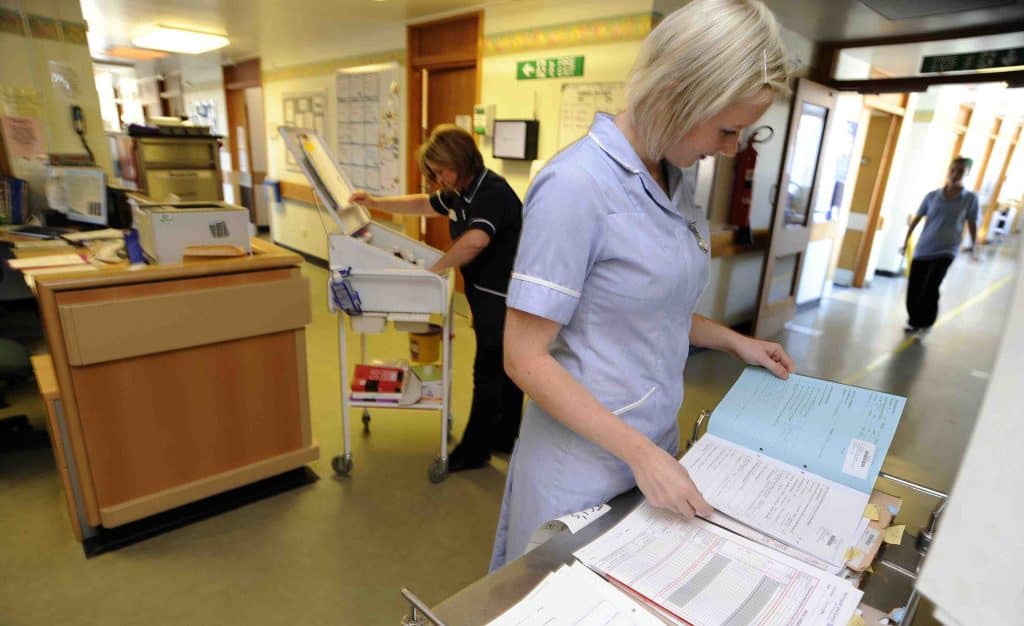
Hospitals on ‘brink of collapse’, warn doctors
pharmafile | September 13, 2012 | News story | | NHS, NHS reform, NHS reforms, QIPP, Sir John Oldham
Hospitals across the UK are struggling to cope with emergency admissions, and a doctors’ group has warned that patient safety is in danger if the system is not reformed soon.
A new report from the Royal College of Physicians points out that the NHS has a third fewer general and acute beds now than 25 years ago, yet the last decade has seen a 37% increase in emergency admissions.
Its new report Hospitals on the edge? The time for action says radical changes in how care is organised – including mergers and closures of hospitals – is needed to ensure patients are treated appropriately, safely and with dignity.
The RCP says its members say a lack of continuity of care is their biggest concern about the current health service.
Announcing its new report, the RCP said: “It is not uncommon for patients, particularly older patients, to be moved four or five times during a hospital stay, often with incomplete notes and no formal handover. Older people are at particular risk as they account for 70% of bed days.
Research shows that medical and nursing staff often feel that older patients ‘shouldn’t be there’. Being perceived as the ‘wrong patient on the wrong ward’ has been shown to reduce the quality of care, building attitudes of resentment from both medical and nursing staff
The underlying problem is that patient needs have changed as the population has aged, but acute hospitals have not changed with them. Today, nearly two thirds (65%) of people admitted to hospital are over 65 years old, and an increasing number are frail or have a diagnosis of dementia. The RCP says that, all too often hospital buildings, services and staff are not equipped to deal with those with multiple, complex needs including dementia.
Sir Richard Thompson, president of the RCP says: One doctor told me that his trust does not function well at night or at the weekend and he is ‘relieved’ that nothing catastrophic has happened when he arrives at work on Monday morning.
He adds: “This is no way to run a health service. Excellent care must be available to patients at all times of the day and night. We call on government, the medical profession and the wider NHS to work together to address these problems.”
The RCP has established the Future Hospital Commission, to bring stakeholders together to examine better processes and standards for treating medical inpatients.
Therefore the RCP is calling for:
- All health professionals to promote patient-centred care and to treat all patients with dignity at all times.
- The redesign of services to better meet patients’ needs. This may involve consolidation of hospital services and hospital closure. The planning and implementation of new services must be clinically led.
- The reorganisation of hospital care so that patients can access expert services seven days a week.
- Access to primary care to be improved so patients can see their GP out of hours, relieving pressure on A&E services.
Professor Tim Evans, lead fellow, future hospital says:
This evidence is very distressing. All hospital inpatients deserve to receive safe, high-quality, sustainable care centred around their needs and delivered in an appropriate setting by respectful, compassionate, expert health professionals. Yet it is increasingly clear that our hospitals are struggling to cope with the challenge of an ageing population who increasingly present to our hospitals with multiple, complex diseases. We must act now to make the drastic changes required to provide the care they deserve.
Suzie Hughes, chair of the Royal College of Physicians Patient and Carer Network says: Hospitals are struggling to allocate beds that are appropriate for the patient’s condition when admitted to hospital because there are not enough beds. On top of this, diagnostic services are unavailable or in extremely short supply during out of hours, weekends and at bank holidays.
Adding to these problems is the new efficiency drive in the NHS, which is seeing staff numbers fall.
Suzie Hughes added: “All the while, hospitals are expected to run services with fewer and fewer trained staff. These issues have a detrimental effect on patient care and lead to longer stays in hospital. The RCP should be congratulated for producing this report.”
The government has responded by trying to play down the talk of crisis in hospital care.
Newly appointed health minister Dr Dan Poulter said: “It is completely wrong to suggest that the NHS cannot cope – the NHS only uses approximately 85% of the beds it has available, and more and more patients are being treated out of hospital, in the community or at home.”
The RCP’s call for large scale change in the health service does, however, chime with the government’s policy. The government needs a consensus among health professional groups and think tanks if it is to make hospital closures and mergers, which have proven to be among the most fiercely opposed decisions in local communities.
Related Content

NICE recommends migraine treatment for NHS use
The National Institute for Health and Care Excellence (NICE) has shared draft guidance recommending AbbVie’s …

Novo Nordisk launches Wegovy in the UK
Novo Nordisk has today announced that Wegovy (semaglutide injection) is now available in the UK …

Bristol Myers Squibb’s Sotyktu recommended for NHS use for adult patients with psoriasis
Bristol Myers Squibb (BMS) has announced that the National Institute for Health and Care Excellence …








